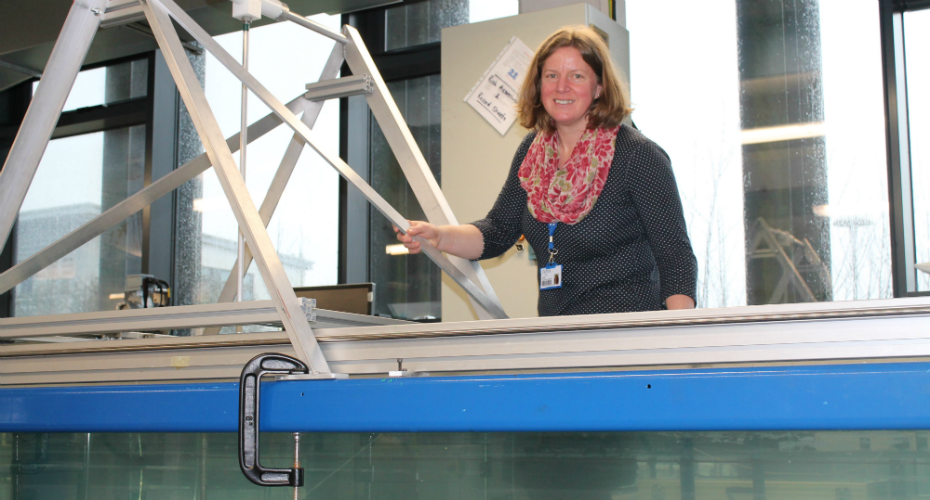Clean Energy and minimising our environmental impact - Dr Helen Smith, Senior Lecturer in Renewable Energy (Penryn Campus)
Dr Helen Smith (PhD, 2008) is a Senior Lecturer in Renewable Energy based at our Cornwall Campus in Penryn. She was inspired to work with the marine environment and undertook an MSc in Hydrography (mapping the seabed) at Plymouth University before joining Exeter as the first PhD researcher in what became the Renewable Energy group at the Penryn Campus.
Helen’s PhD looked at 'Modelling for resource and environmental impact assessments of wave farms’ and the end of her PhD coincided with significant investment in offshore renewable energy in the South West, focused around the development of Cornwall’s Wave Hub site. This is one of the world's largest and most technologically advanced open access sites for the testing and development of offshore renewable energy technology. Helen is also currently involved in a new “game-changing” tidal energy project. The £40 million collaborative project, called TIGER (Tidal stream Industry enerGisEr pRoject), received official approval in October 2019. The ambitious project aims to drive the growth of tidal stream energy (TSE) by developing new technologies to exploit the potential of tidal stream energy, which you can read more about online.
Helen said: “Energy is a huge challenge, and storage of energy is key, but things are moving in the right direction. We need to see changes in behaviour so that we can minimise the impact on the environment – we need to get people to use energy in a different way.
“Moving forwards, all decisions should be made with a huge amount of environmental oversight. It will also be very interesting to see what the energy mix is in the future – what works best in different environments. There clearly needs to be a mixed approach if we are to solve the problem on a global scale – so people need to be responding differently depending on their environment.”
Helen is also involved in research relating to aquaculture, which is the rearing of aquatic animals or the cultivation of aquatic plants for food. As part of this, she was a co-investigator for the InnovateUK/BBSRC-funded project ‘Lobster Grower 2’, which developed innovative solutions to the challenge of establishing a commercial model for European lobster aquaculture. This saw over 30,000 juvenile lobsters released into St Austell Bay, where the conditions that affect lobster growth and survival rates were monitored in the field. Helen is currently leading the Exeter side of the BBSRC/NERC project ‘Off-Aqua’, assessing the potential for moving Scottish salmon aquaculture to more exposed offshore sites.
Helen is optimistic about fighting climate change and the future. She is hugely encouraged by both the number of students currently studying renewable energy-related degrees, and the i passion of the next generation of students, seen through the Renewable Energy group’s outreach work with local schools.
She said: “There are currently many vacancies in these areas, and not enough qualified people to fill the roles available – so this presents fantastic opportunities for our graduates, in what is a rapidly expanding sector. Our graduates are passionate and enthusiastic, and with the skills we give them, they can make a positive impact in the workplace from day one.
“I’ve no doubt that we can meet the energy challenges posed by climate change through the ongoing development of clean energy technologies. Solar and wind energy are leading the way, and, supported by newer emerging technologies and breakthroughs in energy storage, the world’s energy future is looking increasingly sustainable and secure.”

